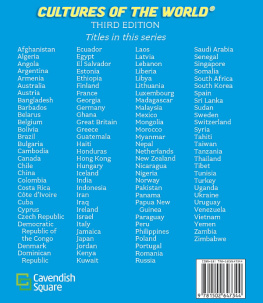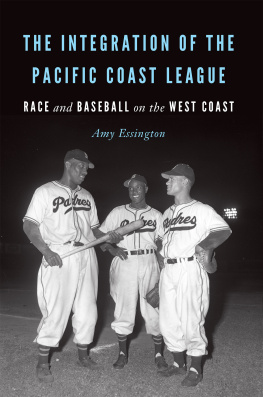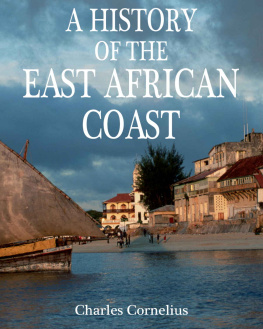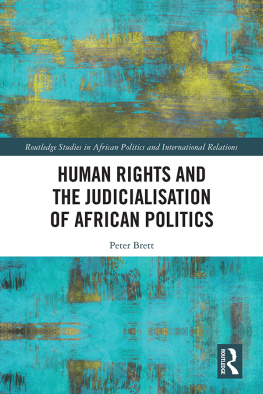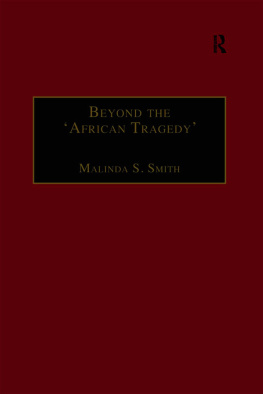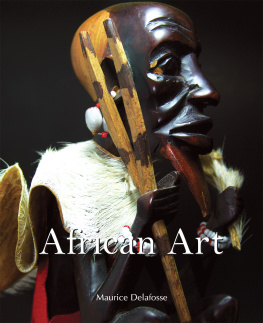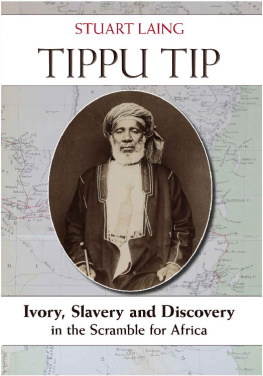African Miracle, African Mirage
NEW AFRICAN HISTORIES
SERIES EDITORS: JEAN ALLMAN, ALLEN ISAACMAN, AND DEREK R. PETERSON
Books in this series are published with support from the Ohio University Center for International Studies .
David William Cohen and E. S. Atieno Odhiambo, The Risks of Knowledge
Belinda Bozzoli, Theatres of Struggle and the End of Apartheid
Gary Kynoch, We Are Fighting the World
Stephanie Newell, The Forgers Tale
Jacob A. Tropp, Natures of Colonial Change
Jan Bender Shetler, Imagining Serengeti
Cheikh Anta Babou, Fighting the Greater Jihad
Marc Epprecht, Heterosexual Africa?
Marissa J. Moorman, Intonations
Karen E. Flint, Healing Traditions
Derek R. Peterson and Giacomo Macola, editors, Recasting the Past
Moses E. Ochonu, Colonial Meltdown
Emily S. Burrill, Richard L. Roberts, and Elizabeth Thornberry, editors, Domestic Violence and the Law in Colonial and Postcolonial Africa
Daniel R. Magaziner, The Law and the Prophets
Emily Lynn Osborn, Our New Husbands Are Here
Robert Trent Vinson, The Americans Are Coming!
James R. Brennan, Taifa
Benjamin N. Lawrance and Richard L. Roberts, editors, Trafficking in Slaverys Wake
David M. Gordon, Invisible Agents
Allen F. Isaacman and Barbara S. Isaacman, Dams, Displacement, and the Delusion of Development
Stephanie Newell, The Power to Name
Gibril R. Cole, The Krio of West Africa
Matthew M. Heaton, Black Skin, White Coats
Meredith Terretta, Nation of Outlaws, State of Violence
Paolo Israel, In Step with the Times
Michelle R. Moyd, Violent Intermediaries
Abosede A. George, Making Modern Girls
Alicia C. Decker, In Idi Amins Shadow
Rachel Jean-Baptiste, Conjugal Rights
Shobana Shankar, Who Shall Enter Paradise?
Emily S. Burrill, States of Marriage
Todd Cleveland, Diamonds in the Rough
Carina E. Ray, Crossing the Color Line
Sarah Van Beurden, Authentically African
Giacomo Macola, The Gun in Central Africa
Lynn Schler, Nation on Board
Julie MacArthur, Cartography and the Political Imagination
Abou B. Bamba, African Miracle, African Mirage
Daniel Magaziner, The Art of Life in South Africa
African Miracle, African Mirage
Transnational Politics and the Paradox of Modernization in Ivory Coast
Abou B. Bamba
OHIO UNIVERSITY PRESS
ATHENS
Ohio University Press, Athens, Ohio 45701
ohioswallow.com
2016 by Ohio University Press
All rights reserved
To obtain permission to quote, reprint, or otherwise reproduce or distribute material from Ohio University Press publications, please contact our rights and permissions department at (740) 593-1154 or (740) 593-4536 (fax).
Parts of chapters 2, 3, and 4 were published previously, though largely in different forms. I extend my thanks to the publishers and editors of the earlier pieces for permission to reuse them: Taylor & Francis Ltd. is acknowledged for permission to reuse sections of Mmoires pistmiques et pouvoir dexperts dans une postcolonie africaine: Le cas de lusage des savoirs africanistes par lORSTOM en Cte dIvoire, Revue canadienne dtudes africaines / Canadian Journal of African Studies 44, no. 1 (Summer 2010). C. H. Beck is appreciated for permission to reuse Triangulating a Modernization Experiment: The United States, France, and the Making of the Kossou Dam in Central Ivory Coast, Journal of Modern European History 8, no. 1 (April 2010). Finally, I thank Lorella Tosone for the permission to reuse Complicare una Risposta Molto Semplice: LAssistenza allo sviluppo degli Stati Uniti e il Miracolo Economico della Costa dAvorio, 19601975, published in Gli auiti allo sviluppo nelle relazioni internazionali del secondo dopoguerre: Esperienze a confronto , ed. Luciano Tosi and Lorella Tosone (Padova: Cedam, 2006).
Printed in the United States of America
Ohio University Press books are printed on acid-free paper 
26 25 24 23 22 21 20 19 18 17 16 5 4 3 2 1
Library of Congress Cataloging-in-Publication Data
Names: Bamba, Abou B., 1972 author.
Title: African miracle, African mirage : transnational politics and the paradox of modernization in Ivory Coast / Abou B. Bamba.
Other titles: New African histories series.
Description: Athens, Ohio : Ohio University Press, 2016. | Series: New African histories | Includes bibliographical references and index.
Identifiers: LCCN 2016025560| ISBN 9780821422380 (hc : alk. paper) | ISBN 9780821422397 (pb : alk. paper) | ISBN 9780821445822 (pdf)
Subjects: LCSH: Economic developmentCte dIvoire. | Cte dIvoireForeign economic relationsUnited States. | Cte dIvoireForeign economic relationsFrance. | United StatesForeign economic relationsCte dIvoire. | FranceForeign economic relationsCte dIvoire. | Cte dIvoireEconomic conditions20th century. | Cte dIvoireHistory20th century.
Classification: LCC HC1025 .B36 2016 | DDC 330.9666805dc23
LC record available at https://lccn.loc.gov/2016025560
For Ian & for Grace Matchenie
Contents
ILLUSTRATIONS
MAPS
FIGURES
TABLE
Preface and Acknowledgments
This book is about the not-so-distant past of Ivory Coast. It is an attempt to shed light on the political economy that informed how the country became an African miracle of sorts in the three decades that preceded the 1980s. It opens a window onto those years when agricultural production went up, deep-sea ports were constructed, hydroelectric dams were built, and an apparent welfare state was instituted; all of which left an impressive paper trail. Thereafter, the phenomenal economic growth of the country seemingly came to a halt, a situation that comforted the predictions of those who had early on argued that the spectacular growth of the Ivorian economy was built on shaky ground. At the current conjuncture where talks on a new Ivorian economic miracle abound, I want to provide a historical analysis that interrogates the past and moves the countrys international history beyond the familiar terrain of the Franafrique. This is achieved through a transnational history approach that attends to both local and global forces to understand the making and remaking of the so-called Glorious Years of Ivory Coast.
From the outset, I want to make it clear that this is not a work in economics. Rather, I reflect historically on the larger social life of some economic ideas. In fact, the project of this book began as a doctoral dissertation in history. Its primary goal in that first iteration was to provide a theoretically informed historical critique of US-led development efforts in late colonial and postcolonial Ivory Coast. My initial inclination was to offer a typical bilateral history of the foreign relations between the United States and Ivory Coast over the latters modernization. But a new and creative look at the legacy of Frances colonial past in Ivory Coast, the US Cold War crusades, and Frances neocolonial projects in Francophone Africa soon turned the notion of a bilateral relationship between Abidjan and Washington into a dynamic triad and more.
From this perspective, then, one of the issues that this project aimed to address and still relates to is the triangulated conceptualizations of development in Ivory Coast, the United States, and France. While the US perspective on these conceptualizations will be of prime concern, a look at the way Ivorian elite and French colonial bureaucrats and later cooprants conceived of the modernization of Ivory Coast will also be explored. In effect, given the historical French (neo)colonial presence in Ivory Coast, it was important to inquire into how France perceived US involvement in Ivorian development. Were there attempts on the part of the French to collaborate with the Americans, or were they out to sabotage, as some US sources suggest, American efforts in Ivory Coast development projects? Moreover, how did the Ivorian elite react to both France and the United States as providers of developmental assistance and the ultimate example of modernity at work? Did they have their own alternative ways of undertaking development? What input (if any) did the people involved in the implementation of modernization projects bring to development as experienced in Ivory Coast? How did the Ivorian people who were supposed to receive the benefits of development negotiate its inherent regime of discipline?


